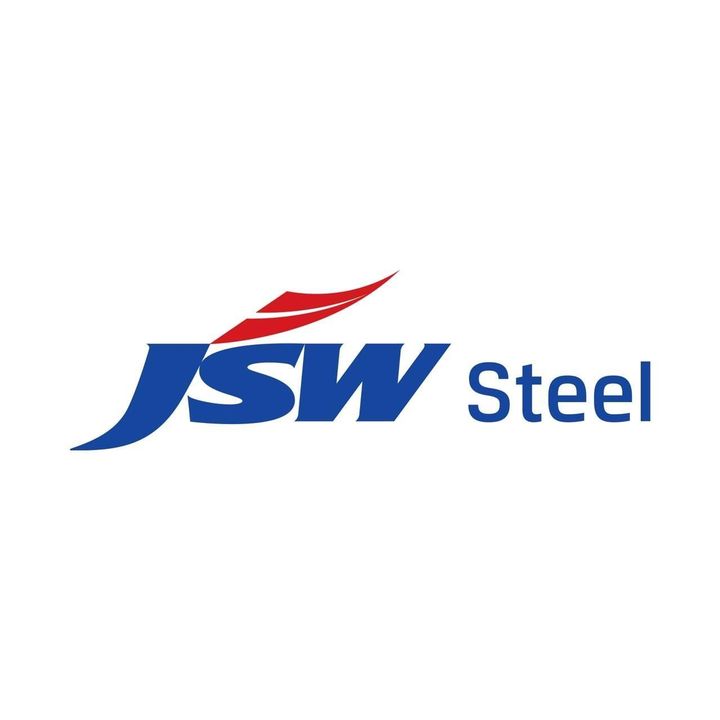JSW Infrastructure and the Future of Maritime Trade in India
October 9, 2024, 9:55 pm

Location: India, Maharashtra, Mumbai
Employees: 10001+
Founded date: 1982
Total raised: $2.02B
In a significant move for India's maritime landscape, JSW Infrastructure has clinched a Rs 4,259 crore contract to develop the Murbe Port in Maharashtra. This greenfield project is not just a construction site; it’s a beacon of economic promise. It symbolizes the Maharashtra government's commitment to enhancing coastal shipping and fortifying the state's maritime infrastructure.
Murbe Port is strategically positioned along Maharashtra’s coastline. It aims to revolutionize cargo operations, streamline logistics, and cut transportation costs. Think of it as a vital artery in the body of India's trade network, pumping life into regional economies. The port will serve as a hub for large-scale cargo operations, facilitating smoother trade routes both nationally and internationally.
JSW Infrastructure, part of the larger JSW Group, is no stranger to the logistics and port sectors. This latest venture solidifies its status as a leader in port development. The company plans to integrate cutting-edge technology into the port's operations. This isn’t just about bricks and mortar; it’s about creating a modern facility that can handle significant cargo volumes while adhering to sustainable practices.
The economic ripple effects of the Murbe Port project are expected to be substantial. Job creation is on the horizon, and the enhanced coastal shipping network will improve connectivity between Maharashtra and other key regions in India. This project is a cornerstone in Maharashtra’s ambition to play a pivotal role in India's burgeoning maritime economy.
The timing of this development is crucial. As global trade dynamics shift, India is positioning itself as a key player in maritime commerce. The Murbe Port will not only cater to domestic needs but also enhance India's competitiveness on the international stage. It’s a strategic chess move in the game of global trade.
In parallel, IRB Infrastructure has reported a 19% increase in toll revenue for September 2024, amounting to ₹502 crore. This growth is a testament to the rising usage of national and state highways. The increase in toll revenue reflects the strength of IRB’s highway and toll projects. It showcases the company’s prowess in managing vital infrastructure, a backbone for economic growth.
Meanwhile, the Mumbai Metropolitan Region Development Authority (MMRDA) has granted a two-month extension on ₹14,000 crore road projects. This decision comes after a legal challenge from Larsen & Toubro (L&T) in the Bombay High Court. The extension is a necessary lifeline for contractors grappling with delays due to legal disputes. It underscores the complexities of infrastructure development in urban settings, where legal and contractual disagreements can stall progress.
In another significant development, Union Minister Nitin Gadkari has launched the Humsafar policy. This initiative aims to enhance facilities along India’s national highways. It’s a comprehensive approach to improving the convenience, safety, and comfort of highway travelers. Under this policy, rest stops will be equipped with essential amenities such as clean washrooms, food courts, and first-aid services.
The Humsafar policy is a response to the growing needs of India's expanding road infrastructure. It recognizes that as more vehicles take to the roads, the demand for quality facilities increases. This initiative is not just about building roads; it’s about creating a traveler-friendly environment.
Together, these developments paint a picture of a nation on the move. The Murbe Port, the rise in toll revenues, the MMRDA's extensions, and the Humsafar policy all contribute to a larger narrative of growth and modernization. India is investing in its infrastructure, laying the groundwork for a robust economy.
The integration of advanced technologies is also a key theme. JSW Group's recent investment in drone technology through its partnership with Aereo is a prime example. This strategic move aims to enhance operational efficiency across various industrial applications. Drones will facilitate mapping, surveying, and monitoring, providing real-time data that can optimize logistics and construction projects.
As companies like JSW embrace automation and digitalization, they position themselves at the forefront of industrial innovation. This shift is not just about keeping pace; it’s about leading the charge into a future where technology drives productivity and sustainability.
In conclusion, the developments in Maharashtra's infrastructure landscape are not isolated events. They are interconnected pieces of a larger puzzle. The Murbe Port project, rising toll revenues, legal challenges in road construction, and the Humsafar policy all contribute to a dynamic and evolving infrastructure ecosystem.
As India continues to invest in its maritime and road networks, the potential for economic growth is immense. The country is not just building ports and highways; it is constructing pathways to a prosperous future. The commitment to innovation and sustainability will be crucial as India navigates the waters of global trade and domestic growth.
The future is bright, and the journey has just begun.
Murbe Port is strategically positioned along Maharashtra’s coastline. It aims to revolutionize cargo operations, streamline logistics, and cut transportation costs. Think of it as a vital artery in the body of India's trade network, pumping life into regional economies. The port will serve as a hub for large-scale cargo operations, facilitating smoother trade routes both nationally and internationally.
JSW Infrastructure, part of the larger JSW Group, is no stranger to the logistics and port sectors. This latest venture solidifies its status as a leader in port development. The company plans to integrate cutting-edge technology into the port's operations. This isn’t just about bricks and mortar; it’s about creating a modern facility that can handle significant cargo volumes while adhering to sustainable practices.
The economic ripple effects of the Murbe Port project are expected to be substantial. Job creation is on the horizon, and the enhanced coastal shipping network will improve connectivity between Maharashtra and other key regions in India. This project is a cornerstone in Maharashtra’s ambition to play a pivotal role in India's burgeoning maritime economy.
The timing of this development is crucial. As global trade dynamics shift, India is positioning itself as a key player in maritime commerce. The Murbe Port will not only cater to domestic needs but also enhance India's competitiveness on the international stage. It’s a strategic chess move in the game of global trade.
In parallel, IRB Infrastructure has reported a 19% increase in toll revenue for September 2024, amounting to ₹502 crore. This growth is a testament to the rising usage of national and state highways. The increase in toll revenue reflects the strength of IRB’s highway and toll projects. It showcases the company’s prowess in managing vital infrastructure, a backbone for economic growth.
Meanwhile, the Mumbai Metropolitan Region Development Authority (MMRDA) has granted a two-month extension on ₹14,000 crore road projects. This decision comes after a legal challenge from Larsen & Toubro (L&T) in the Bombay High Court. The extension is a necessary lifeline for contractors grappling with delays due to legal disputes. It underscores the complexities of infrastructure development in urban settings, where legal and contractual disagreements can stall progress.
In another significant development, Union Minister Nitin Gadkari has launched the Humsafar policy. This initiative aims to enhance facilities along India’s national highways. It’s a comprehensive approach to improving the convenience, safety, and comfort of highway travelers. Under this policy, rest stops will be equipped with essential amenities such as clean washrooms, food courts, and first-aid services.
The Humsafar policy is a response to the growing needs of India's expanding road infrastructure. It recognizes that as more vehicles take to the roads, the demand for quality facilities increases. This initiative is not just about building roads; it’s about creating a traveler-friendly environment.
Together, these developments paint a picture of a nation on the move. The Murbe Port, the rise in toll revenues, the MMRDA's extensions, and the Humsafar policy all contribute to a larger narrative of growth and modernization. India is investing in its infrastructure, laying the groundwork for a robust economy.
The integration of advanced technologies is also a key theme. JSW Group's recent investment in drone technology through its partnership with Aereo is a prime example. This strategic move aims to enhance operational efficiency across various industrial applications. Drones will facilitate mapping, surveying, and monitoring, providing real-time data that can optimize logistics and construction projects.
As companies like JSW embrace automation and digitalization, they position themselves at the forefront of industrial innovation. This shift is not just about keeping pace; it’s about leading the charge into a future where technology drives productivity and sustainability.
In conclusion, the developments in Maharashtra's infrastructure landscape are not isolated events. They are interconnected pieces of a larger puzzle. The Murbe Port project, rising toll revenues, legal challenges in road construction, and the Humsafar policy all contribute to a dynamic and evolving infrastructure ecosystem.
As India continues to invest in its maritime and road networks, the potential for economic growth is immense. The country is not just building ports and highways; it is constructing pathways to a prosperous future. The commitment to innovation and sustainability will be crucial as India navigates the waters of global trade and domestic growth.
The future is bright, and the journey has just begun.

